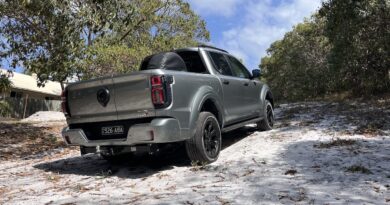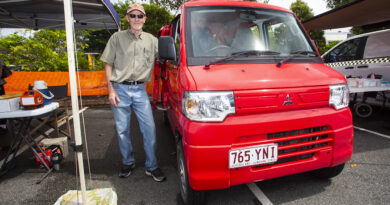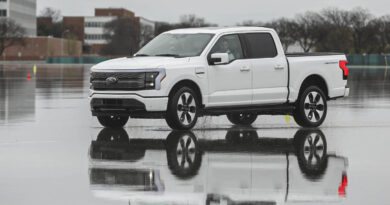BYD on incoming Chinese rivals: ‘We welcome the competition … technology will keep us on top’
BYD’s Australian importer has declared itself ready and able to withstand the pressure of more than a dozen new Chinese brands arriving in Australia keen to emulate its sales and steal its market share.
Since arriving in Australia in 2022, BYD has been on a skyrocketing sales trajectory, gaining instant success with the Atto 3 compact electric SUV.
Since then the Chinese brand has added the Dolphin mini-car, Seal sedan and Sealion plug-in hybrid medium SUV.
Its Australian sales ambitions are staggering, effectively aiming to double its vehicle sales each year out to 2026 when it would – on that rate – reach 100,000 sales per annum.
Before the end of the decade it wants to surpass Toyota as Australia’s top selling brand.
BYD’s success – and that of fellow-Chinese brands MG and GWM which have been here much longer – has helped trigger a huge rush toward the Aussie market from China.
Some are niche luxury EV brands like Zeekr and others like Xpeng are being launched by car industry neophytes.
But the likes of Stellantis-backed Leapmotor, Geely, Changan and Chery – which is already here – all have mass market ambitions with a combination of EV and hybrid models.
EV Central has been told the strategy for at least one of the above brands is to pitch equivalent vehicles to BYD’s offerings at cheaper prices with more equipment.
And that strips away one of BYD’s key advantages over the traditional legacy brands it’s been battering: its price and value advantage.
“That’s the beauty of competition and we love competition,” responded David Smitherman, the CEO of local BYD distributor, EVDirect.
“For us it’s all about momentum, it’s about bringing new models to market and making the most of it.”
There are many new BYD models coming. Over the balance of 2024 BYD is planning to add the Shark plug-in ute, “a smaller vehicle” and another electric SUV to its Aussie line-up.
The plan beyond that is to keep adding 4-5 new models to its line-up every year.
The subsidiary Yangwang, Denza and Fang Cheng Bao brands are also part of the expansion plan.
But Smitherman emphasised other aspects of the EVDirect/BYD business model that he says will keep the joint-venture ahead of the new Chinese rivals.
“The thing I know is we always work hard,” Smitherman said. “That’s probably the first thing, and we have a team of dedicated professionals that know the Australian market and we work incredibly well with the BYD HQ.”
That’s clearly a reference toward some of the distributors that come into the market selling new Chinese brands with limited automotive experience.
Smitherman also pointed to BYD’s powerful position in the Chinese market, which is even more competitive than Australia with dozens of local and global brands fighting for a share.
“One of the great things is BYD is the market leader in China,” he said. “BYD is the number one brand in China, which straight-up gives us an advantage.
“They play the same game in China and they are winning and so I think we are ready and able to compete where we need to.”
BYD’s enormous research and development abilities would also benefit its Australian operation, Smitherman said.
“I think we have a technology advantage.
“If you look at the DM-i [plug-in] technology, it’s terrific technology. Most people are going to drive the Sealion 6 as an EV. So I think we lead the way.
“BYD leads the market by investment. If you invest in R&D and you invest in technology I think you’re always going to come out on top.”




